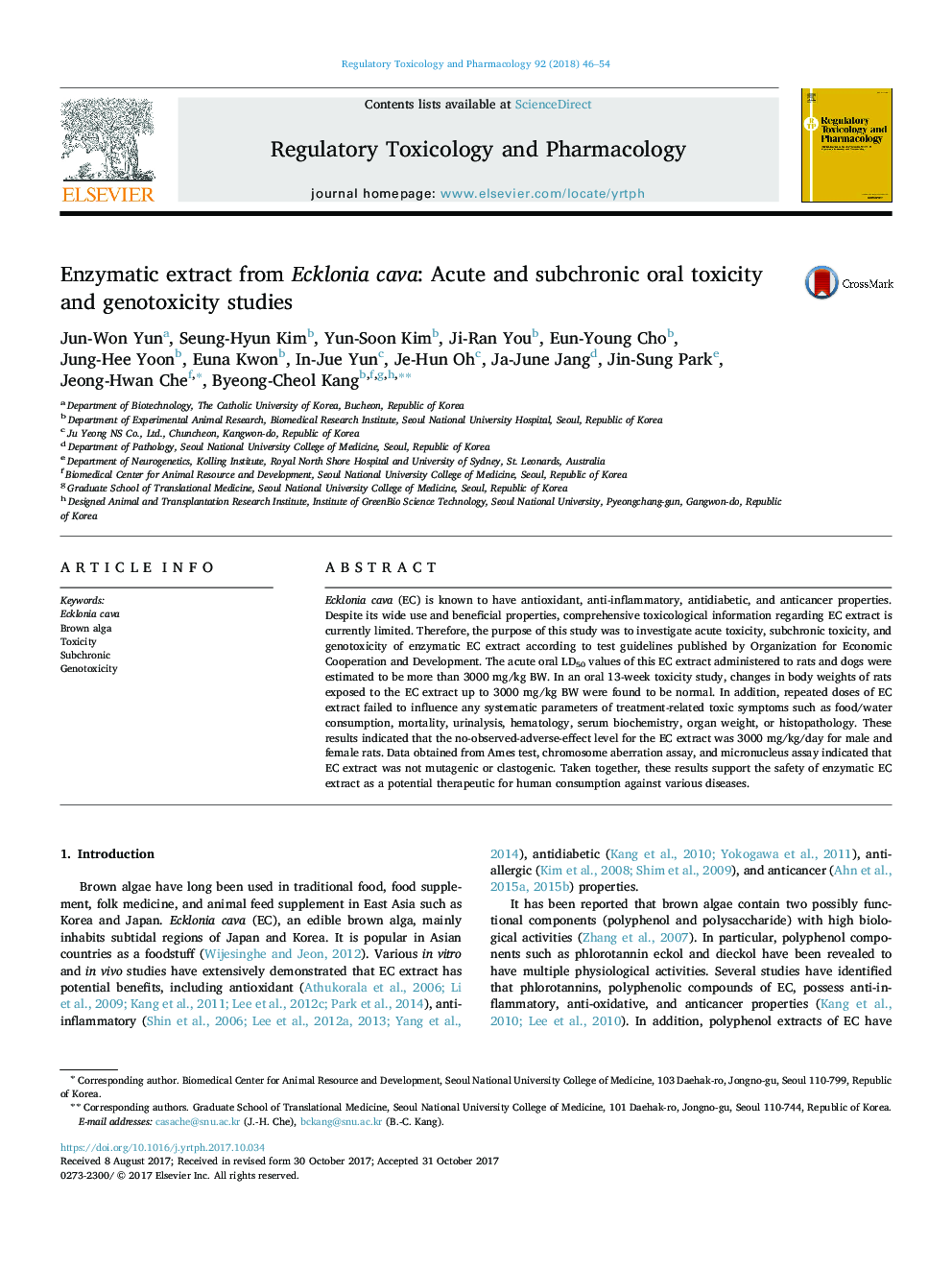| Article ID | Journal | Published Year | Pages | File Type |
|---|---|---|---|---|
| 8551654 | Regulatory Toxicology and Pharmacology | 2018 | 9 Pages |
Abstract
Ecklonia cava (EC) is known to have antioxidant, anti-inflammatory, antidiabetic, and anticancer properties. Despite its wide use and beneficial properties, comprehensive toxicological information regarding EC extract is currently limited. Therefore, the purpose of this study was to investigate acute toxicity, subchronic toxicity, and genotoxicity of enzymatic EC extract according to test guidelines published by Organization for Economic Cooperation and Development. The acute oral LD50 values of this EC extract administered to rats and dogs were estimated to be more than 3000Â mg/kg BW. In an oral 13-week toxicity study, changes in body weights of rats exposed to the EC extract up to 3000Â mg/kg BW were found to be normal. In addition, repeated doses of EC extract failed to influence any systematic parameters of treatment-related toxic symptoms such as food/water consumption, mortality, urinalysis, hematology, serum biochemistry, organ weight, or histopathology. These results indicated that the no-observed-adverse-effect level for the EC extract was 3000Â mg/kg/day for male and female rats. Data obtained from Ames test, chromosome aberration assay, and micronucleus assay indicated that EC extract was not mutagenic or clastogenic. Taken together, these results support the safety of enzymatic EC extract as a potential therapeutic for human consumption against various diseases.
Related Topics
Life Sciences
Environmental Science
Health, Toxicology and Mutagenesis
Authors
Jun-Won Yun, Seung-Hyun Kim, Yun-Soon Kim, Ji-Ran You, Eun-Young Cho, Jung-Hee Yoon, Euna Kwon, In-Jue Yun, Je-Hun Oh, Ja-June Jang, Jin-Sung Park, Jeong-Hwan Che, Byeong-Cheol Kang,
